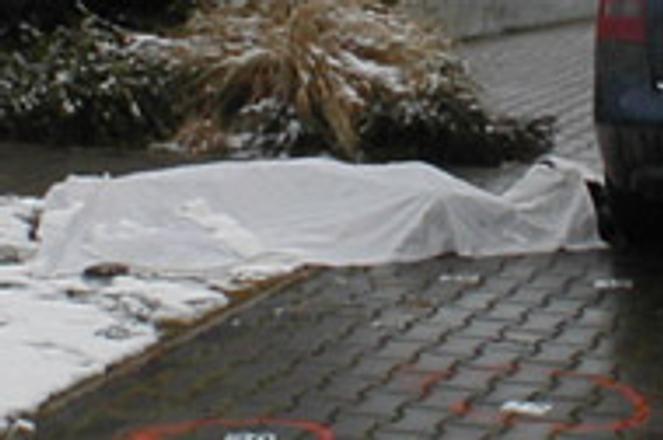Known as a "very strong personality" in the Slovak nuclear lobby, Ján Korec was murdered in Piešťany amid murky circumstances.photo: Ondrej Kollár
As details emerge around the murder of Ján Korec, the director of Slovakia's Nuclear Energy Research Institute (VUJE) in Trnava, the motive for the murder remained uncertain.
Korec was killed in the garden of his residential home by machine gun fire at 5:20 in the morning on February 23 in the quiet spa town of Piešťany. At a Bratislava press conference five days later, Slovak Chief Investigator Jaroslav Ivor said that police had arrested and charged three men suspected of the murder: 32 year-old Ivan G. and 33 year-olds Eduard D. and Miroslav Z., all from western Slovakia's Trnava.
Ivor added that 46-year old Július P. had ordered the hit over a "business conflict" with Korec. A police source, who spoke to The Slovak Spectator under the condition of anonymity, confirmed that the charged was a Trnava businessman; the name the police verified is to be found in the Slovak business directory as a former partner from 1991 till 1997 in the Trnava-based Stabet construction company (under Slovak law, media are forbidden to divulge the full name of suspects until they have been convicted of a crime).
Ivor said that Július P. had tried to have Korec killed last year when he offered Miroslav Z. 300,000 Slovak crowns ($6,500) to commit the murder. He later raised the offer to 500,000 crowns, which was accepted by the three suspects.
One of the paid killers, Miroslav Z., is the son-in-law of Ľubomír M., chief of the Foreign and Customs Police in Bratislava, said Police Commisioner Imrich Angyal, adding that the relation had no significance.
"It's a coincidence," he said. "You don't choose your family relatives. They [Miroslav Z. and Ľubomír M.'s daughter] married eight years ago and now have a seven year-old child."
One of Július P.'s sons committed suicide four years ago, reported the news agency SITA; another currently owns Koliba Hotel in Trnava.
All three of the suspected murderers have confessed to the police. Július P. has refused to testify.
Nuclear lobby
While the police remain tight-lipped over the case, nuclear sector observers said they are convinced the murder was the result of Korec's involvement in Slovakia's nuclear lobby, which endured a huge scandal last year over plans for spent nuclear fuel.
According to the 2001 Global Report on Slovakia, produced by a consortium of Slovak NGOs, the Slovenské Elektrárne (Slovak Electricity - SE) energy utility which runs Slovakia's nuclear plants signed a secret 241 billion Slovak crown ($5 billion) deal to export spent fuel to Russia for treatment, and then have it sent back to Slovakia for dumping; dumping the waste in an underground facility already built in Slovakia would have cost only 68 billion crowns. Former SE head Štefan Košovan was fired last March after a government audit of SE and the contracts it had signed.
Despite the paucity of hard evidence, there has been no shortage of nuclear-sector experts to claim that Korec's nuclear contacts had proven fatal.
"This murder was related to the nuclear lobby," said Alexander Duleba, an analyst specialising in Slovak-Russian relations with the Slovak Foreign Policy Association in Prešov. "There are plans from the Russian side to be involved with the Slovak nuclear sector, and these plans could bring in as much as $2 billion. So this is good motivation to be involved in this lucrative state business."
Angyal would not confirm whether the murder involved the nuclear lobby, saying only that an investigation had been launched during which all potential motives would be examined.
Korec, who was a member of the pre-November 1989 Communist Party and later joined the current-government SDĽ party and the HZDS party of former Prime Minister Vladimír Mečiar, was considered an influential member of the Slovak nuclear lobby. "Korec was a very strong personality within the nuclear lobby," Greenpeace Director Ľubica Trubíniová told The Slovak Spectator March 5. She added that her organisation was also certain Korec had been killed over his involvement in the nuclear lobby, although she admitted that they had no proof to back up the suspicions.
"Greenpeace will cautiously follow the outcome of this tragedy, which according to us is clearly connected to the activities and business of the nuclear energy sector," she said the day after the murder. "In the name of the public, we demand that all details be clarified, not only concerning the violent death of Ján Korec, but also its motives. Citizens cannot be sure of their safety or lives when the accounts of the nuclear sector - of interest to the whole state - are settled by men with machine guns."


